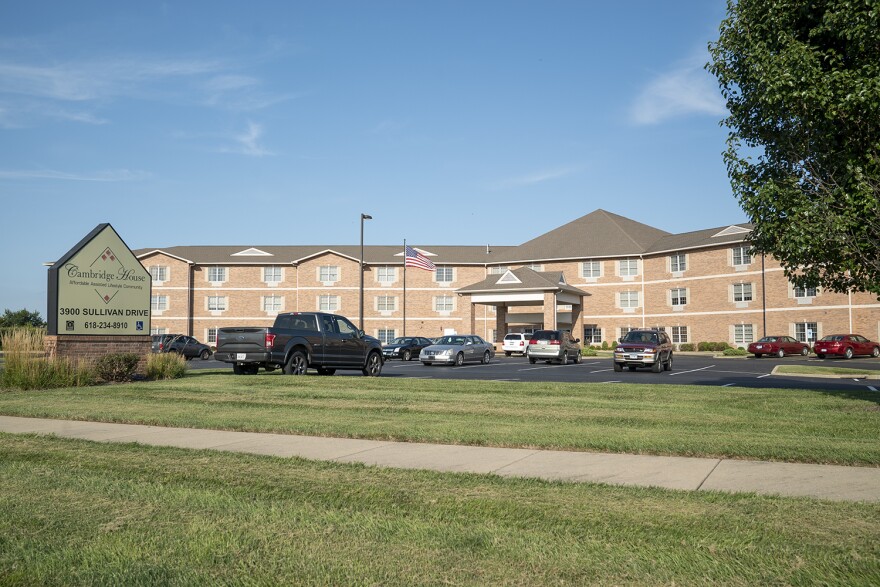BELLEVILLE — Metro East residents will have more options for affordable dementia care. The Illinois Department of Healthcare and Family Services announced it is expanding the number of its dementia care sites across the state.
The department said it will add 1,600 apartments for dementia patients at 40 care sites over the next three years. Three of those sites are in the Metro East. The Cambridge House communities in Swansea, O’Fallon and Maryville will each get 50 new apartments.
An apartment at one of these facilities costs about $100 a day. Residents cover the costs of room and board, and Medicaid dollars cover the costs of services like medication oversight, housekeeping and social and recreational programming, said Kelly Cunningham, deputy Medicaid administrator for long-term care and behavioral health at the Department of Healthcare and Family Services.
“What supportive living offers, generally and for patients with dementia, is a chance to maintain a little bit of that lifestyle people had previous to their diagnosis,” Cunningham said. “It feels less like a nursing home, less like an institution.”
The expansion is part of the Illinois Supportive Living Program, an alternative to nursing-home care that can accept Medicaid dollars for the services it provides. Residents live in their own leased apartments. That distinction is important because it means patients can maintain some of their independence, said Lee Bohannon-Smith, administrator at Cambridge House of Swansea.
“Generally, a memory care person might just need an extra level of supervision — not necessarily personal care,” she explained. “They need more supervision, more activities, more engagement.”
The care facilities offer supervision of dementia patients, ensuring they remember daily needs such as eating, bathing or getting dressed. They also provide residents with options for social activities.
“They may not be suffering from a lot of physical frailty yet, but they may have issues with their memory, their ability to take their own medications,” Cunningham said.
This expansion comes at an important time, Bohannon-Smith said. Many people in the Metro East need memory care, but most of the current facilities are too expensive, and patients are referred elsewhere.
“Maybe two out of every five people that we discharge from here, two to three would need memory care,” Bohannon-Smith said. “Unfortunately, since there isn’t a public aid memory care currently, they would most often be referred to a nursing facility, probably before they really needed to go to a nursing facility.”
The Illinois Medicaid program expects most of the new apartments across the state will be ready for people to move into in 2020.
Eric Schmid covers the Metro East for St. Louis Public Radio as part of the journalism grant program Report for America, an initiative of The GroundTruth Project. Follow Eric on Twitter: @EricDSchmid
Send questions and comments about this article to: feedback@stlpublicradio.org






